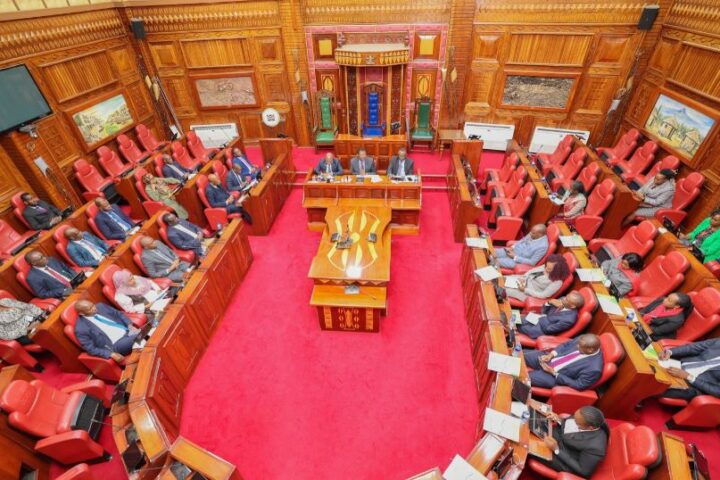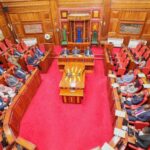
The firm stated that they will no longer represent Heshan de Silva, after observing “ambiguity and inconsistency presented by the brand.”
In the press release, Glass House seemed to suggest that the 26 year old ‘billionaire’ is a ‘Waiganjo’.
“We apologize to the public for not representing an authentic brand as clear communication and transparency are values that we adhere to. We have learnt from this process as a company and we promise to research and conduct the due diligence required for all the brands that we represent in the future.”
The PR firm further states that it will no longer host the monthly ‘Hesh talks’.
“We shall no longer hold hesh talks (Monthly entrepreneurship events) or follow up on Pitch180( an investment radio show) but we promise to create other platforms for entrepreneurs to interact and learn.”
Heshan de Silva became famous after he was featured on K24’s Young Rich. People love inspirational stories and a twenty something billionaire is just the perfect bet.
For Njenga Karume’s case, we know he started by selling charcoal, we know the story of Equity bank founders, Tuskys founders etc… but surprisingly, Heshan’s story is very vague.
Apparently, he started the de Silva Group a few years ago with only $200. The version I’ve heard has it that he sold some idea to an insurance company, but I know neither the idea nor the insurance company.
He says that he invests in startups, but really not much information is out there.
According to him, DSGVenCap – the company he owns, has invested in over 17,000 businesses, none of which is known.
Here’s an excerpt from Brandkenya.go.ke
Seven years ago De Silva invested his 10 000 Kenyan shilling ($116) allowance from his parents to start a small business selling travel insurance to the poor. Going for as little as KSh5 – less than five US cents – it was bundled with long-distance bus tickets and could be bought via mobile phone. By the end of the year he had made KSh90-million, over a million US dollars.
After earning his first million, De Silva moved on to financing ingenious ideas. His DSGVenCap has so far invested in 22 000 people and has created 17 000 businesses.
After earning his first million, De Silva moved on to financing ingenious ideas. His DSGVenCap has so far invested in 22 000 people and has created 17 000 businesses. “This is the ideas sector, where you can convert ideas into viable companies.”
Today one of the youngest venture capitalists in Africa, De Silva chooses the projects carefully, and has grown the De Silva Group into one of the region’s most enterprising entities. It has holdings in commodities, technology, renewable energy, insurance, robotics, advertising, hospitality, fashion, rural road construction, hardware and agribusiness, and works with major East African corporations such as Equity Bank, Housing Finance Corp, Scanad, and East African Breweries Limited.
DSGVenCap invests an average of $10 000 to $15 000 in each idea, and helps the entrepreneurs it funds to execute their ideas. So far, company and its beneficiaries have created jobs for some 70 000 people.
Going through his Twitter timeline, you may be forgiven to think that motivational speaking is his full time job. From Mount Kenya University to Nailab to Hillcrest, everyone wants his services.
Several bloggers have written about how his riches story does not add up, and with his PR firm leaving him, this is getting interesting.
His story has been posted on the infamous ‘Buyer Beware’ Facebook page, with some people already branding him a ‘con man’, but I would rather not go that road until he gives his story properly. Perhaps a clear blog post will do.







